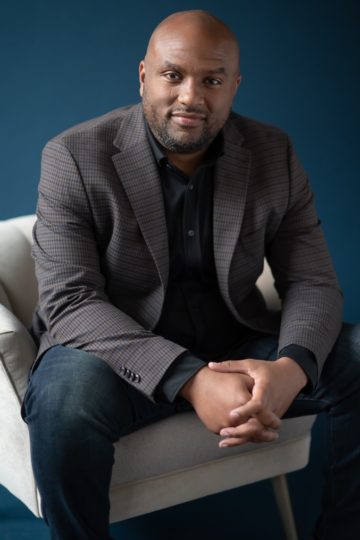Brian Carey Sims has over 15 years of faculty and administrative experience in university teaching and learning, faculty governance, and social and instructional media. He is founder and Director of the Center for Metrics & Evaluation at the University of Nebraska Medical Center, and serves on faculty as an Associate Professor in the Department of Health Promotion in the College of Public Health. He previously served as founder and Executive Director at Jomoworks, an education management consulting firm specializing in University / K-12 partnership development with a portfolio that includes evidence-based programs, funded research and evaluation projects, strategic partnerships in community violence prevention and engagement and research dissemination science.
Brian’s research focuses on school mental health, agricultural life &

